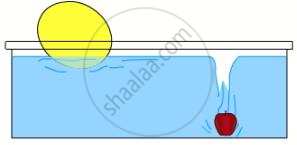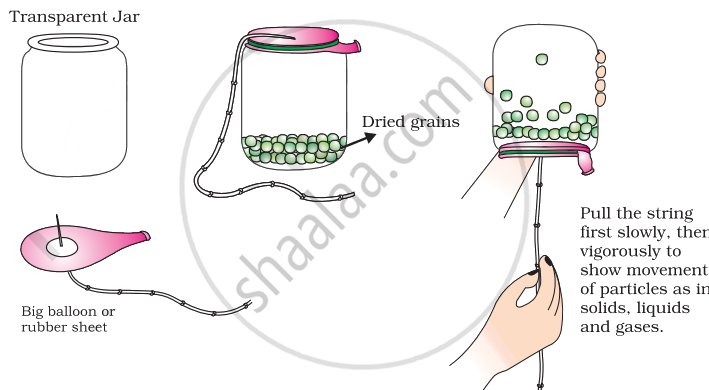Advertisements
Advertisements
Question
Match the following:
| Column A | Column B |
| (a) Evaporation of water | (i) Non-periodic change |
| (b) Milk turning sour | (ii) Periodic change |
| (c) Earthquake | (iii) Chemical change |
| (d) Change of seasons | (iv) Physical change |
| (e) Glowing of bulb | (v) Reversible change |
Solution
| Column A | Answer |
| (a) Evaporation of water | (v) Reversible change |
| (b) Milk turning sour | (iii) Chemical change |
| (c) Earthquake | (i) Non-periodic change |
| (d) Change of seasons | (ii) Periodic change |
| (e) Glowing of bulb | (iv) Physical change |
APPEARS IN
RELATED QUESTIONS
Convert the following temperature to Celsius scale:
573 K
The latent heat of fusion of ice is :
There are four substances W, X, Y and Z. The substance W is a dark violet solid having diatomic molecules. A solution of W in alcohol is used as a common antiseptic C. The substance X is a white solid which is usually recovered from sea water on a large scale. The substance Y is a white solid which is insoluble in water and used in the form of small balls for the safe storage of woollen clothes. The substance Z is a yet another white solid which is used in making commonly used dry cells.
- Name (i) W (ii) X (iii) Y and (iv) Z.
- Out of W, X, Y and Z, which substance/substances can undergo sublimation ?
- Which substance is organic in nature ?
- What is the name of substance C ?
- Which substance belongs to the halogen family ?
Why is an egg kicked out of a bottle when air is blown inside the bottle?
State the three effects of heat on matter
Differentiate between: Melting and boiling
Give reasons:
Why a solid does not flow, but a liquid flows?
Fill in the blanks:
Water boils at ______.
Name the phenomenon which causes the following changes:
Disappearance of camphor when exposed to air
Give two examples of the following:
Substances which do not change their states.
Explain the term freezing
State which of the following statement is true or false. If false write the correct statement.
The conversion of water to ice is called freezing.
State if the following is a physical property of a substance.
Water acidified with dilute sulphuric acid is a good conductor of electricity.
Why does this happen?
Coconut oil thickens in winter.
Why does this happen?
Kerosene left open in a dish disappears.
Why does this happen?
What you see in the picture.

Fill in the blanks with the correct words of the statement given below:
During sublimation, a solid on heating turns directly into _________ and on cooling back to __________.
Select the correct answer from A, B, C, D & E for the statement given below:
The state of matter which has ___________ least density & no free surfaces.
Complete the blank with reference to interconversion of matter on the basis of kinetic theory-with the word ‘increase’, ‘decreases’, ‘gain’, ‘lose’, or ‘overcome’ in the following case.
During vaporization, the liquid particles ____________ energy.
Prepare a model to demonstrate movement of particles in solids, liquids and gases.
For making this model you will need
- A transparent jar
- A big rubber balloon or piece of stretchable rubber sheet
- A string
- Few chickpeas or black gram or dry green peas.
How to make?
- Put the seeds in the jar.
- Sew the string to the centre of the rubber sheet and put some tape to keep it tied securely.
- Stretch and tie the rubber sheet on the mouth of the jar.
- Your model is ready. Now run your fingers up and down the string by first tugging at it slowly and then rapidly.

